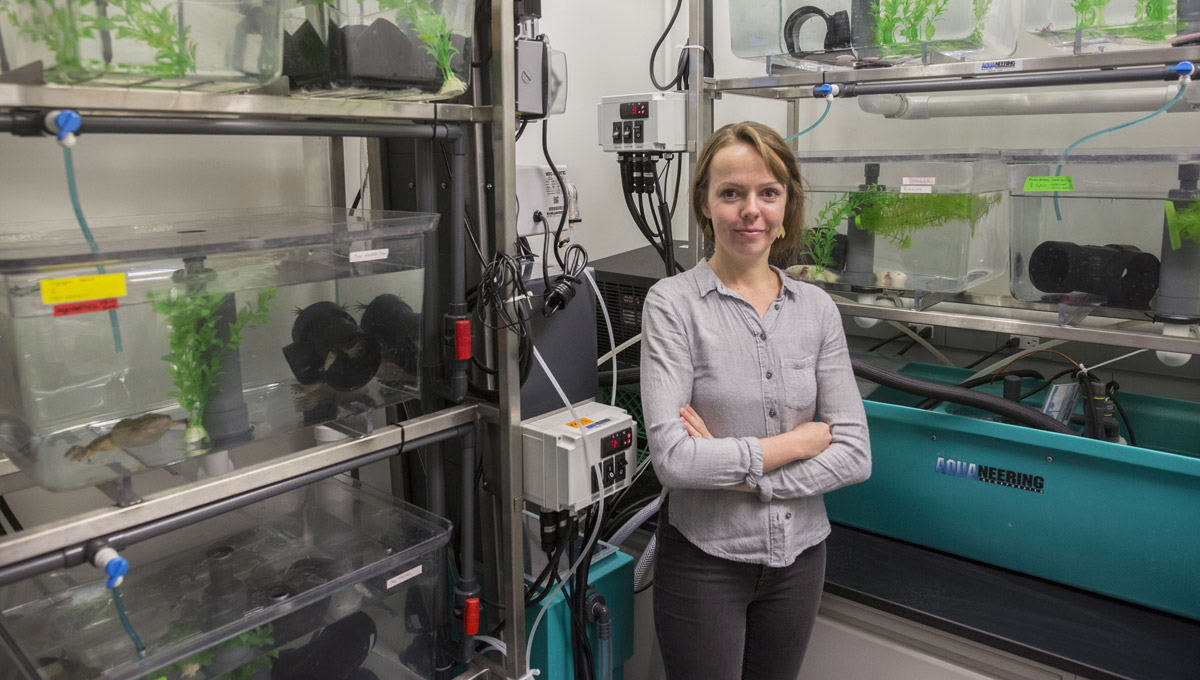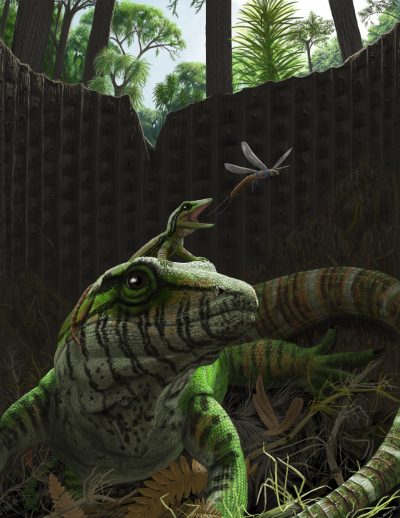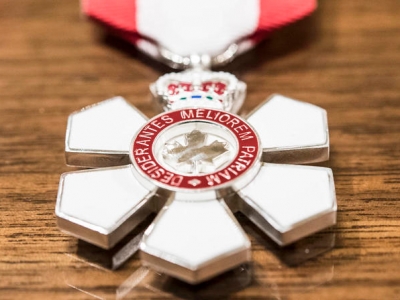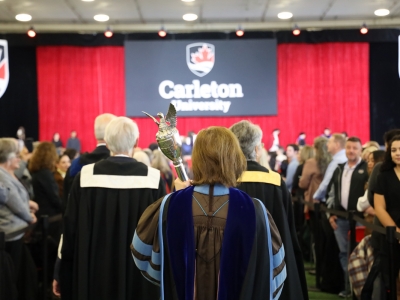A team led by Carleton University’s Hillary Maddin has discovered the earliest fossil evidence of parental care. The fossil predates the previous oldest record of this behavior by 40 million years and is featured in an article in Nature Ecology & Evolution.
“Prof. Maddin’s discovery provides us with the earliest glimpse into the evolution of parenthood as we know it,” said Charles Macdonald, dean, Faculty of Science. “This is a truly remarkable example of the groundbreaking research being conducted at Carleton University.”

Prof. Hillary Maddin
“This is the earliest evidence of prolonged postnatal care in a vertebrate,” said Maddin, professor in the Department of Earth Sciences. “The adult animal appears to be concealing and protecting a juvenile in a den. This behavior is very common in mammals today. It is interesting to see this animal, which is on the evolutionary line leading to mammals, exhibiting this behaviour so early.”

Maddin’s team recently discovered the specimen of a varanopid synapsid inside a lithified tree stump on Cape Breton Island, Nova Scotia. The preserved articulated partial skeleton has a unique combination of features and represents a new species. The preserved remains are of a small individual close to a large individual of the same species in a position resembling a parent denning with an offspring.
“This discovery shows that Nova Scotia still has plenty of amazing secrets to be discovered in its fossil record,” said research collaborator, Brian Hebert. “I’m hopeful that the Nova Scotia government will appreciate how discoveries like these can add to the province, not only scientifically, but also in terms of tourism and economically. I have been excited to work with Hillary since we met. I knew that she would appreciate the little known places in Nova Scotia and how they can change the way we look at the world.”
Much Left to Learn About Parental Care Strategies
The preservation of delicate details and structures in the fossils indicate a rapid burial with little movement after death. This suggests the arrangement of the two animals is a close approximation of their position just prior to death. The location of the juvenile beneath the hindlimb and encircled tail of the larger parent resembles a position that would be found with denning animals. The specific setting of the fossil discovery also supports the idea of the two animals occupying a den as they were found within the root portion of the stump.
The varanopid synapsid is lizard-like in appearance, but is nowhere near lizards in its evolutionary position. Once animals were able to lay eggs on land, they split into two distinct evolutionary branches, one that led to reptiles, birds and dinosaurs and the other, which included the varanopid synapsid, led to mammals.
Parental care is a behavioural strategy where parents make an investment or divert resources from themselves to increase the health and chances of survival for their offspring. While there are a variety of parental care strategies, prolonged postnatal care is among the most costly to a parent. This form of parental care is particularly common in mammals, as all mammalian offspring demand nourishment from their mothers. However, there is still little understanding of the evolutionary history of this behaviour.
Scientists have attempted to answer questions about the origin of parental care by studying fossils. Evidence of parenting has been generally limited to finding groups of preserved specimens of varying ages of the same species.
Monday, December 23, 2019 in Faculty of Science, Research
Share: Twitter, Facebook



